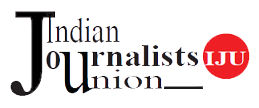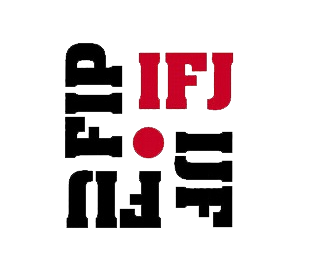The Congress Centre of Angers, France resembled a mini UN General Assembly. Over 300 delegates from a 100-odd journalist unions across the globe--Europe, Africa, Latin America, Arab World/Middle, North America, East and Asia Pacific descended to deliberate on the burning issues confronting the fraternity, reaffirm their commitment and search for answers at IFJ"s 29th Congress. The challenges were both old and new - from safeguarding press freedom, to safety of journalists, to ethical journalism, to gender equality, to the growing threat of hate speech, of intrusive surveillance, of impunity, of media corporatisation, to reaching out to younger generation, et al. The list was long and the time in hand was four days, June 7-10.
Given the changing landscape in the media and labour market and the fact that their profession was facing unparalleled attacks world over, there was a sense of urgency. Challenges had to be met, no matter if the priorities were different in the regions-say if in Africa the unions priority was to fight government for press freedom and ensure safety of journalists, Europe's was to deal with job cuts and dwindling union membership, or say in Asia training journalists for a digitalised world, or for that matter unions in war-ravaged countries or conflict areas fighting for bare survival. What was reaffirmed was that while immediate goals may differ, 'unity and solidarity' was critical to success.
The debates and contributions were focussed. Motions and resolutions were tabled, argued 'for' or 'against' and carried or defeated through voting. The Federation's working ---its Constitution, activities and finances came under the scanner. Regional bodies held their meetings and prioritised the concerns and so did the IFJ Gender Council. The Presidium and the various Commissions (election, finance, Constitution, Resolutions) worked under pressure. And then came the final moment, when the sense of urgency turned to excitement - the elections. The delegates had to make their choice - of who should lead the Federation for the next three years. There was a rush of getting the ballot papers and sealing the fate of candidates for the officers and other members of the Executive Committee, the governing body between Congresses.
In a closely fought battle, the baton was passed on to a new team. The mandate given to take forward the decisions, policies and working programme as outlined in Angers and report back to the next Congress. The delegates elected Belgian Philippe Leruth as President, re-elected Moroccan Younes M'jahed as Senior Vice President, elected Indian Sabina Inderjit and German Joachim Krebich as Vice Presidents and elected outgoing President Jim Boumela as Honorary Treasurer.
The number of those vying for the other 16 Executive Committee seats surpassed previous Congress, with 34 candidates in the fray! Those who made it first past the post were 3 from Arab World and Middle East --Palestine, Iraq, Tunisia; 2 from Asia Pacific-Taiwan and Australia; 3 from Latin America -- Peru, Colombia, Panama; 5 from EuropeFrance, Italy, Sweden, Russia, Spain; 2 from Africa-Somalia and Senegal; one from North America--Canada, bringing down the curtains on a fairly hiccup less Congress. Indeed, since the start on 6th, when delegates started arriving, the city of Angers, in the unique setting of the Loire Valley region, a World Heritage site, with its mayor, the French unions, SNJ and SNJ-CGT and IFJ staff team, played gracious hosts. A pre-conference entitled "Celebrating our Histories", set the ball rolling. It took the delegates to a journey beginning 1926, when the IFJ was born in Paris, with 25,000 journalists from 19 countries. The Federation passed through choppy waters during World War II and the Cold War. Briefly, the occupation of France by Germany in 1940 put an end to the activities of the IFJ as its offices were in Paris. The NUJ in London took the initiative to ensure continuity and formed the IFJ of the Allies or free countries (IFJAFC) and held its first Congress in December 1941 at Royal cafe in London. After the war, IFJAFC dissolved in June 1946 in Copenhagen and there was the creation of International Organisation of Journalists (IOJ).
By the end of the 90s, IOJ practically disappeared, while the IFJ continued to grow to the 21st century and today boasts of having 44 00,000 members across 140 countries. There couldn't have been a more befitting commemoration of IFJ's 90 years, as the Congress witnessed the 'reunification' of the two organisations.
Delving from the past the next session looked at the future. Entitled "Challenge for Change: Organising Young journalists in an Evolving Media", the panel discussion took off from IFJ's global survey 2015, an overview of the changing nature of employment, how journalists unions were responding and adapting strategies to service their members and recruit future generations of journalists.
The panellists from across Africa, Middle East and Arab World, Asia Pacific, Americas and Europe, painted a diverse picture of how successful or not they had been to attract the young. While membership was declining in Europe, the Arab world was optimistic. Post lunch session dealt with "Strong Unions Matter" where panellists from Great Britain & Ireland, Brazil, Sweden and dealt on the critical issue in the backdrop of growing job insecurity, low wages, concentration of media ownership houses, impact of online journalism, and even the latest threat of rise of the far right. In the backdrop of fears voiced, another session "The Next 10 Years" had words of caution with panellists worried about the times ahead with closures of newspapers, job redundancy, media ethics taking a beating and union membership on the decline. However, at the end, the trade unionists were firm that their rights were non-negotiable.
In another room, women delegates debated the challenges the IFJ Gender Council needed to counter. Dismal women participation in unions and the difficulties they faced both at work and in unions were voiced and ideas shared to mainstream gender equality. The meeting adopted new rules for the Council, reelected the Chair and Co-chair Mindy Ran and Mounia Belafia and a new Steering Committee representing all the regions. The Congress unanimously carried an amendment to constitution incorporating Gender Council.
The Congress was officially opened later in the evening by Jim Boumelha with his Presidential address, wherein he dealt at length on the activities undertaken during his term with a thrust on relations with other organisations, especially UNESCO, which 'have borne fruit'. His ending note was that he believed the IFJ must always stand for the basic rights of journalists throughout the world-"that is both our history and our destiny".
The following morning, the ball was set rolling on the work at hand. The Presidium, which conducts the Congress proceedings and safeguards the working rules, and the various Commissions were put in place. General Secretary Anthony Bellanger gave a comprehensive report touching at length all aspects of IFJ's functioning since Dublin Congress. After several delegates from different regions spoke, the General Secretary replied to the debate and the Report was adopted by the Congress. Honorary Treasurer Wolfgang Mayer presented his Finance report, which detailed the financial crisis faced by the Federation. After heated debate, it was approved.
Later in the evening, a commemorative march by the delegates carrying a white rose was led through the streets of Angers for the photo-journalist Camille Lepage, who was from Angers and was killed in the Central African Republic in 2014. The march, with her parents joining, started from the Congress Centre and ended at the Angers library where a plaque was unveiled. The 26-year-old journalist had been travelling near the CAR border with Cameroon when she got caught in the fighting. The circumstances of her death remain un-investigated.
The Congress passed several resolutions moved by the member unions on threats from the governments, where journalist safety was at risk or those on hunger strike or imprisoned censorship, and lockouts. Special events were arranged for the delegates in the evening, where over a glass of wine and dinner, the concerns were pushed to the background. One eve-ning we were entertained at the museum, another at the botanical garden, at restaurants in the main square of the city and the last night at the Angers Castle. The rain couldn't dampen the spirits at the Gala Dinner. It was bonhomie all through.




